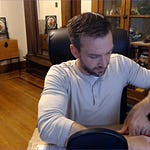Kids are expensive. That might be the understatement of the century, if not of all time. But it needs to be stated here because, for the longest while, I didn't believe it. I even wrote an article for a website about how raising kids costs way less than people say. It was in response to an annual study from some government office that said it takes approximately $243,000 to raise a child from the age of zero to eighteen. I know that was the cut off because, if the estimate included college, it would have been closer to half a million. Those were the numbers years ago. If it were today, it would top a billion. Everyone knows the optimal learning environment includes a 24-hour lazy river/ice cream bar combo. In my article, I insisted children were much cheaper to raise than the report said. All you had to do was clip coupons and never do anything fun. For twelve years, I was right. Then my second oldest child, Mae, decided to do band. It took one instrument purchase for us to break the government estimate and then some.
We haven't actually paid for anything yet. We had the initial meeting about prices Thursday. I sent my wife, Lola, which was a mistake. She lacks my inherent distrust of anyone who asks for money. I'm your guy if you need someone to give a hard no to a group of Girl Scouts selling thin mints. According to the band officials at the first parent meeting, the instruments cost a mere $66 per month. Even better, they were rent-to-own. After only infinity payments, that saxophone would be ours. The actual number of installments was less than that, but not by much. Basic multiplication told me they planned to bill us a grand total of $2,500 for this hunk of brass. Of course, we could pay for it outright and get it at a relative steal for only $1,500. I could put the money I saved toward paying for the heart attack I had after I heard both prices. Looks like I'm going to hit my health insurance deductible two years in a row.
I didn't realize how good I had it with my oldest daughter, Betsy. She chose choir over band. The human voice is the oldest instrument, and also the most affordable. I can buy Betsy a bag of cough drops every year and still come out ahead. Sure, there are extra costs every once in a while. I need to shell over $10 here for a t-shirt or $25 there for admission to some choir concert. But overall, she couldn't have picked a cheaper entry point to the arts. Now that I know the price difference, I'll do everything in my power to convert my youngest two children into singers as well. Our house is now officially a permanent karaoke bar. I can put up with the added volume if it saves me thousands down the line. That even factors in the cost of ear plugs.
Perhaps I'm overreacting, as usual. Lola doesn't think band is all that expensive, relatively speaking. After all, the maximum $2,500 price tag includes a lifetime service agreement. Scratch that. It's actually just a service agreement for as long as you're making payments, which is close to a normal human lifetime. Once you finish buying that thing fifty years down the road, however, all the maintenance costs are on you. How pricey are the repairs? A few hundred dollars at a time, apparently. That can really add up, especially if Mae is hard on her instrument, which I know she will be. I can already envision her saxophone being used as a cudgel. I'd say that's never acceptable, but everything is context dependent. In the zombie apocalypse, go ahead and use your super expensive instrument as a blunt force weapon. But on a regular Tuesday, please don't attack your sisters with the most valuable thing we own—or will own shortly before the end of the world when all the payments are finally done.

That’s almost enough to buy half a saxophone.
Naturally, as soon as I understood the impending financial damage, I began looking for cheaper options. I asked my sister Sasha if we could buy her saxophone. She played all the way through high school, even though I never once attended one of her concerts or heard her blow a note. That's one of the perks of being part of a gigantic Catholic family with large gaps between children. By the time Sasha hit her prime band years, I had moved out and was dealing with children of my own. Or maybe I was still in college. Who knows? Figuring out where I was at in life would depend on me knowing how old she is, which is never going to happen. My awareness of birthdays in the rest of my family depends entirely on my mom posting a cake GIF in the family Facebook Messenger thread at 4 a.m.. I dutifully follow suit with a happy birthday GIF of my own. I'm the best older brother you could ever ask for. It's weird that the entire family wants to disown me.
Sasha is out of law school now and working her first grown-up job. I assumed she no longer had time to toot the golden j. I'm trying hard to come up with synonyms for "saxophone," but I need to stop. They all sound like euphemisms for drugs or worse. Sasha was pleased when she heard Mae wanted to follow in her footsteps and play the saxophone—but not enough to sell us hers. Even though she hadn't played her saxophone in years, she didn't want to let it go. There was always the possibility she might join an amateur jazz band someday. For the record, exactly zero percent of people who hold onto their instruments ever join an amateur jazz band. Amateur jazz bands don't exist outside of that one Pixar movie. And if you email me to say that you are, in fact, in a jazz band, I'll assume you don't exist, either. These fake Russian bots are getting out of hand.
I don't know why Sasha was so attached to her saxophone. The sunk cost fallacy shouldn't apply since she didn't pay for it. My parents bought it used for $540, which is still a large amount of money today and would have been even more an unknown number of years ago when they acquired it. Still, even factoring in inflation, that was significantly cheaper than the installment price Mae's school offered us. Lola wanted to go along with it because that's what everyone else was doing. She asked our friends and family members on Facebook, who heavily favored the leasing model. With a rent-to-own agreement, the rent part means you can bail at any time, although you would lose your equity. The fact that I'm talking about equity for something small enough for a ten-year-old to carry around tells you just how out-of-control the market really is. I admit that the ability to bail and cut your losses is appealing, but it only helps if you're raising a quitter. That's not one of the qualities Mae possesses. She joins things and sticks with them forever, much to my chagrin. It's a shame the quitter gene isn't hereditary. I give up hard, early, and, on occasion, with style. I have yet to see a bridge that wouldn't look better burned.
There are other alleged perks to the rental agreement. If the saxophone is in the shop, the school would temporarily replace it with a loaner instrument. There's no stopping those off-keynotes. Lucky us. Unfortunately for the band department sales staff, this English major can do simple math. Not really, but my phone does have a calculator. It also has eBay and Facebook Marketplace. I did a quick search on both and found out that the fancy, universally recommended brand of saxophone goes for about $450 second-hand. Going that route was heavily discouraged by the powers that be. After all, who knows what condition it would be in after some other kid used it for even a single year? It could be a reject from the saxophone demolition derby or the brass band jousting league. That entire argument reeks of hypocrisy. If I can't depend on the fancy, name brand saxophone after just twelve months of abuse, why would I spend years making payments on one? Either it's built to last, or it's not. At $450, I could repair it over and over again before I reached even the lower buy-it-now price of $1500 for a new one. What's more, used name brand saxophones seem to always hover around the $450 mark, no matter how long you use them. If I buy it at that price and Mae bails or gets kicked out of the band—those hotel rooms won't trash themselves—I can probably get most of my money back out of it, even after a few years. With a new saxophone, however, I would take the hit on the depreciation. It's like a new car. It loses most of its value as soon as you drive it off the lot. At least it used to be that way before the chip shortage made used cars—and even used minivans—a hot commodity. I don't think saxophones have microchips, but I can't say for sure. These days, even my washing machine won't turn on without connecting to the Wi-Fi. Worst case scenario, I'm sure the musical equivalent of the Genius Bar can handle a used saxophone's firmware upgrade. Apple products suddenly don't seem so expensive by comparison.
But what will Mae do while her instrument is in the shop? At Facebook Marketplace prices, I could buy her a second one and repair that, too. Afterwards, I could sell one or both at a slight loss. Or I could just hold onto them and let her rotate between the two, alternately playing them and swinging them like weapons as needed. Then, if one of her younger sisters makes the misguided decision to take up band, we'll have a second musical device ready to go. Short of that, in the case of an emergency repair, we could just rent an instrument from the school for a month. They emphasized how easy it was to give those instruments back, no strings attached. I could try that out, only to be entangled by all the hidden strings. There always has to be one jerk to stress test the rules. To the surprise of no one, that jerk is usually me.
I have a hunch that the key to being a successful and supportive band parent isn't to try to spend as little as possible. I'll soon find out for sure. Perhaps the secret to a truly meaningful extracurricular experience is teaching your kid that their level of fun and enrichment isn't dependent on the amount of money involved. That's a fancy way of saying I want to raise my daughters to be as cheap as me. I literally wrote a book titled Bare Minimum Parenting. Good luck selling one titled Maximum Cost Child Rearing. Then again, my book didn't exactly hit the New York Times bestseller list, so perhaps I misjudged the market. I need to take into account the credit card generation. For my next book, maybe I'll recommend that parents buy instruments on the longest possible installment plan. Yes, "instruments," plural. Anything worth overpaying for is worth overpaying for twice. As the old saying goes, debt is love. I can't remember if I read that in Atlas Shrugged or the Bible.
Anyway, that's all I've got for now. Catch you next time.
James











Share this post